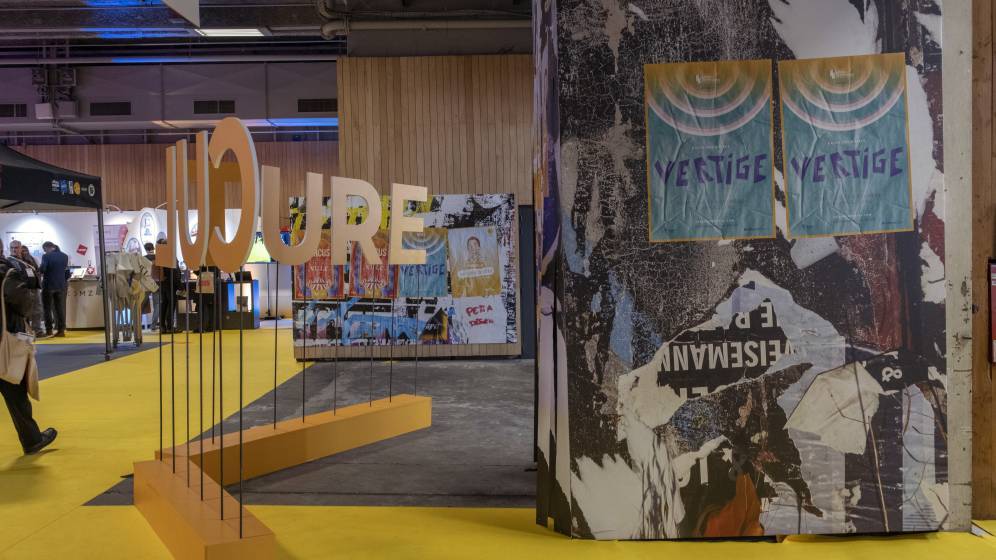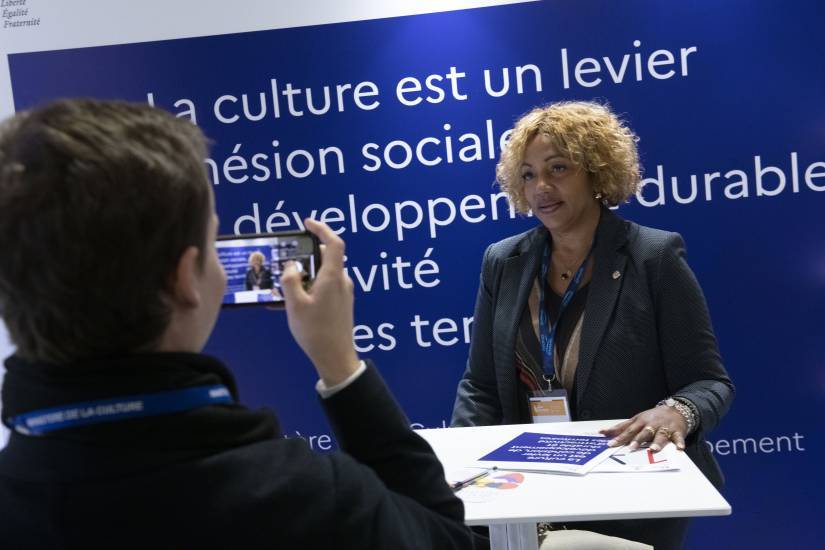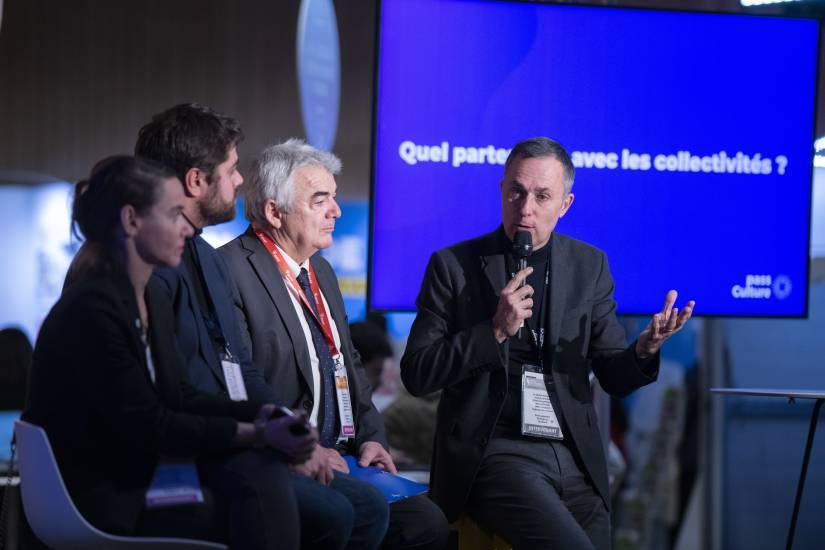Do we know enough? The Ministry of Culture maintains a strong partnership relationship with local authorities, whose role in cultural development is well established. To prove it, he only needs to look at variety – and vitality! – initiatives and other engineering tools that it mobilizes to support them: consultation bodies, such as the National Council of Territories for Culture; mechanisms to strengthen the cohesion and attractiveness of territories, such as the Culture Pass or Micro-Follies; labels to highlight cultural diversity, such as the French Capitals of Culture or 100% arts and cultural education. Unquestionably, this diversity reflects a sustainable and strong anchorage in the territories, particularly through the regional cultural affairs directorates.
To raise awareness of all these proposals, some of which are well known, others less, the Ministry of Culture took part this year – it was a great first – in the Fair for Mayors and Local Communities, which took place from 22 to 24 November at the Porte de Versailles in Paris. The objective? Go and meet elected officials and communities to present them with measures that they can benefit from or that may interest them. The success was at the rendezvous, since the Ministry of Culture has already set a date with the management of the Show for the next edition of it.
A sustainable anchorage in the territories
First observation: the stand of the Ministry of Culture, which brought together, notably, collaborators from all directions of the ministry, aroused the interest and curiosity of many visitors. Especially since it was “prolonged” in spaces – the so-called “Innovation Arena” for lozenges, and “Culture Space” for conferences – where two types of interventions were offered to the public: conferences (presentation of a specific topic) and a series of small «pastilles» (quick summaries on a transversal subject).
Before returning to the subject of several conferences (see our articles on the Cultural Olympiad, the Culture Pass and the Micro-Funds), let’s look at an innovative format, that of presenting the challenges of a device in the form of «tablets». Presented and animated by Évelyne Laquit, Director of Information and Communication at the Ministry of Culture, these «pastilles» (see the videos), which attracted by their collected form, focused on a generic theme: “territorial innovation”. They addressed the following topics: public procurement, the language pact, the Atlas of Culture, the Territorial Innovation Fund and the public purchase of non-school books.
An issue of territorial democracy
Promoting artistic creation everywhere and for everyone, that was the democratic challenge of the first «pastille», which dealt with the presentation of the public order system in the public space. « This method of action has been proven for a long time, but it is not contradictory with territorial innovation Simon André-Deconchat, Assistant to the Delegate for Visual Arts in the Artistic Creation Directorate at the Ministry of Culture, highlights two of its modalities in the territories: the 1% artistic (' a system that requires the commissioning of works by artists for any public construction, which has enabled the creation of an exceptional heritage and, most recently, the Charter “1 building, 1 work” (' with this scheme, private real estate developers undertake to commission artistic projects for their building programs ").
Another way to inspire communities is through the language pact. “ It is an innovative tool that invites us to promote our country’s extraordinary linguistic diversity Claire Extramania, Advisor for Territorial Action to the General Delegation for the French Language and the Languages of France. As evidenced by the language pact signed in Hauts-de-France in 2020 between the Ministry of Culture, the Hauts-de-France region, the Conseil Départemental de l'Aisne and the community of communes of Retz-en-Valois, which drives actions in three areas the fight against illiteracy, the promotion of linguistic diversity, and the welcoming of the Francophonie as part of the opening of the Cité internationale de la langue française, which will open in spring 2023 New language pacts should be signed soon in La Réunion, in the Provence-Alpes Côte d'Azur and Grand Est regions.
Everything is there for a thorough knowledge of cultural France: data on cultural offer, territorial cultural policies, businesses and cultural employment… Particularly valuable tool, the Cultural Atlas allows « to understand the cultural offer in a territory based on mapping and data », explains Edwige Millery, Publications Manager in the Department of Studies, Foresight, Statistics and Documentation at the Ministry of Culture. Data selected because of ' their robustness, their openness, and the fact that they can be compared with other data », which document « this reactor core » what is the mapping tool. In addition to this map, there is a data-visualization tool that allows you to visualize the expenditures of a community and compare them with others, as well as territorial portrait cards.
A territorial development challenge
Two schemes to provide financial support to local authorities were also presented: the Territorial Innovation Fund and the scheme for the public purchase of school books.
To present the first, what better way than to give a voice to a community that has – successfully – used it? This is the case of Montmédy, a municipality in the Meuse region, whose mayor, Pierre Léonard, supports this measure. Thanks to him, Carole Nieder, graduate of the National School of Architecture of Strasbourg was recently welcomed in the territory of the municipality where it developed a project on the reciprocal influence between body and space through the notion of imprint "In the end, " the inhabitants rediscovered their territory », says Pierre Léonard, who thanks the Drac Grand-Est for his help ' on programming and network access ».
Second example: the ' public purchase scheme for school books » is presented by Eva Carlin, Project Manager in the Book Economics Department of the Cultural Industries Directorate of the Ministry of Culture. « Since 2016, does it detail, a specific provision of the Public Order Code allows local authorities in the context of an over-the-counter contract to apply directly to booksellers in their territory for orders of less than €90,000 excluding taxes '' Over-the-counter (OTC) contract, i.e. without going through a traditional tendering process. that specialist wholesalers, better equipped than independent bookstores, are more likely to win The idea is of course to preserve the rich fabric of local bookstores in France.
Partager la page



